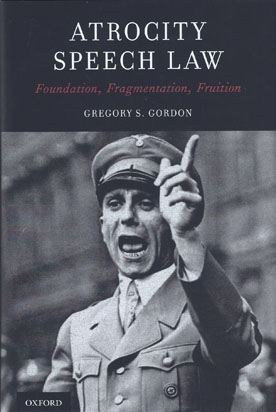
Hate speech is widely considered a precondition for mass atrocity. Since the rise of international criminal tribunals after World War II and the development of international criminal law, defendants have been prosecuted for individual speech acts connected to gross human rights violations under charges that have coalesced into direct and public incitement to commit genocide; persecution as a crime against humanity; and instigation.
The resulting jurisprudence has been fragmented and confused, and existing scholarship has been focused on particular tribunals or situations. The splintered rulings give inadequate notice to would-be hate speakers as to what speech is prohibited, which weakens prevention efforts and leads to inconsistent results. This is especially problematic considering ongoing atrocity speech prosecutions across the International Criminal Tribunal for Rwanda.
This book is the first comprehensive study of the international law encompassing hate speech. Prof. Gordon provides a broad analysis of the entire jurisprudential output related to speech and gross human rights violations for courts, government officials, and scholars.
The book is organized into three parts. The first part covers the foundation: a brief history of atrocity speech and the modern treatment of hate speech in international human rights treaties and judgments under international criminal tribunals. The second part focuses on fragmentation: detailing the inconsistent application of the charges and previous prosecutions, including certain categories of inflammatory speech and a growing doctrinal rift between the ICTR and ICTY.
The last part covers fruition: recommendations on how the law should be developed going forward, with proposals to fix the problems with individual speech offenses to coalesce into three categories of offense: incitement, speech-abetting, and instigation.